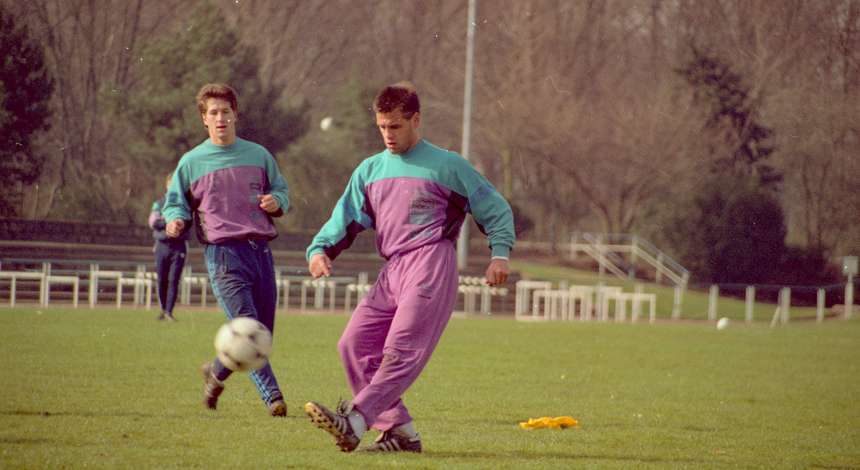
The morning training session was quiet and normal. As on most Wednesdays, there was extended shooting practice at two goals with shots from the edge of the penalty area, from crosses or in one-on-ones with the goalkeeper. The coach Reinhard Saftig was standing near my goal and watching impassively. Suddenly Franco Foda grabbed his thigh after a shot and started to limp. "I'm going in to see Tscholli, I think I've torn something." He slowly left the training pitch. Coach Saftig looked concerned.
Less than five minutes later it struck Ulf Kirsten. And there was deathly silence on the training ground when Andreas Thom fell to the ground with pain on his face and then went back to the dressing room. Reinhard Saftig was tearing his hair out and I heard a mumbled, "What are we going to do now?", next to my goal. He ended the training session and went straight to our physio Dieter Trzolek.
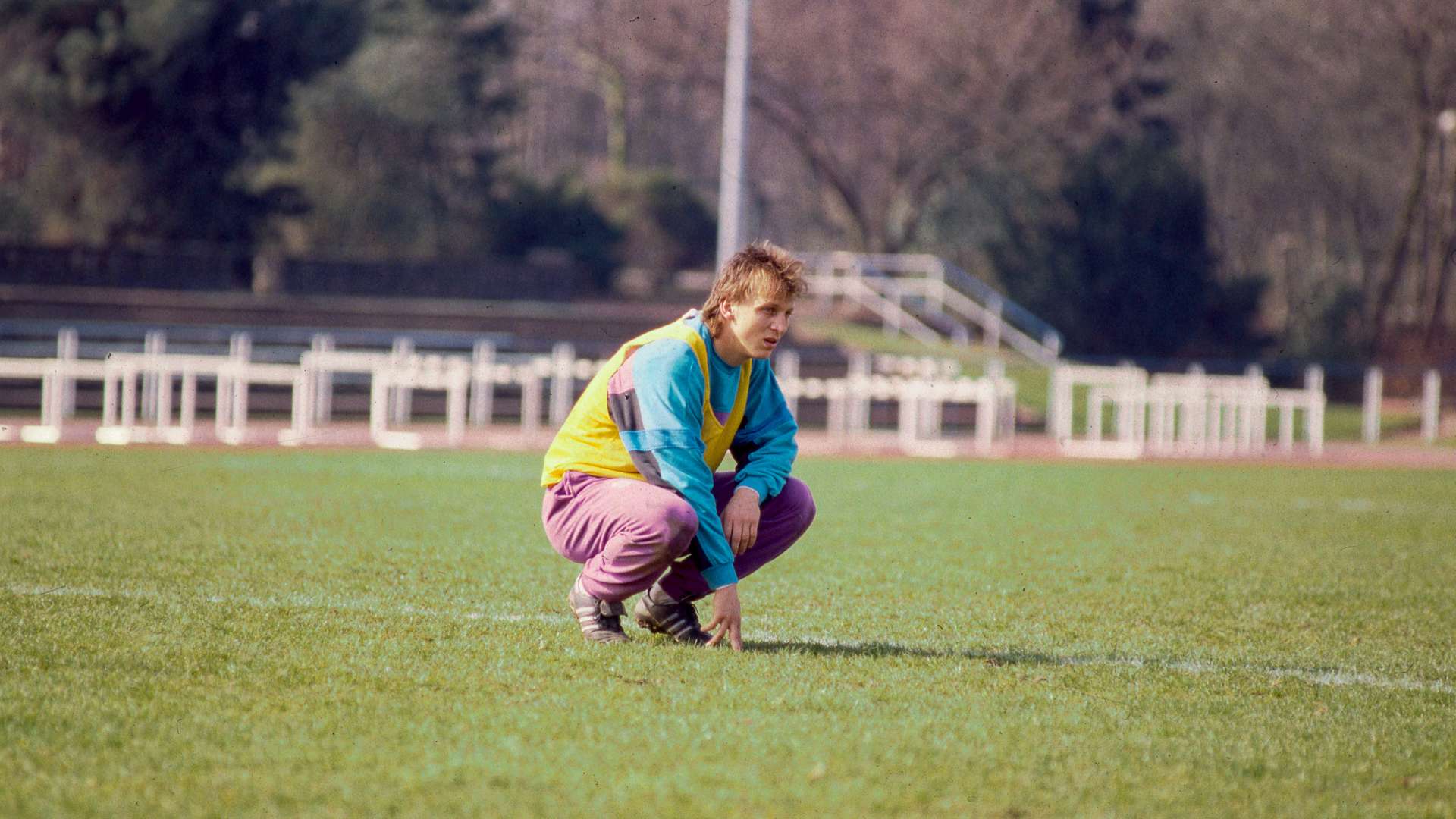

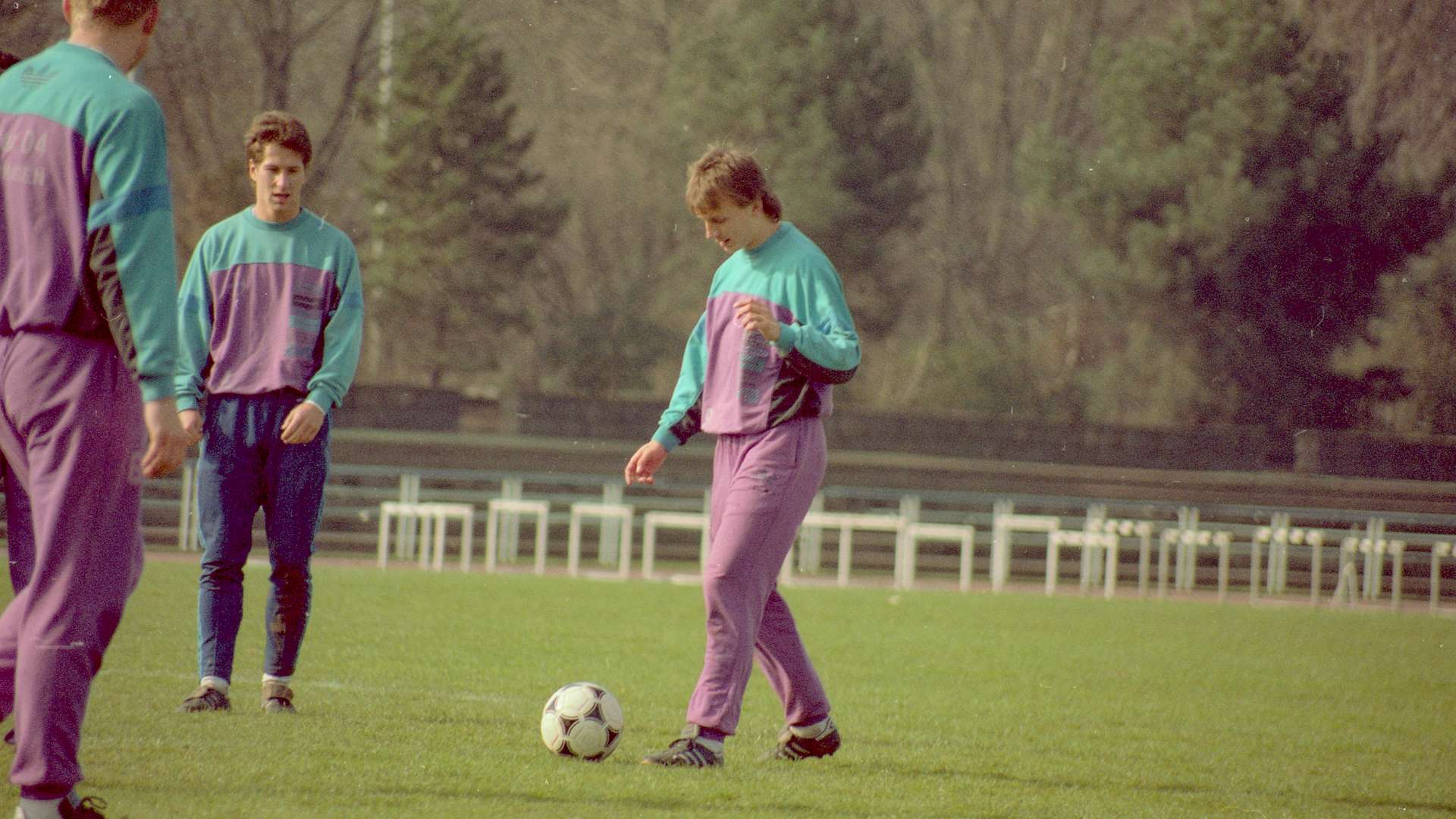
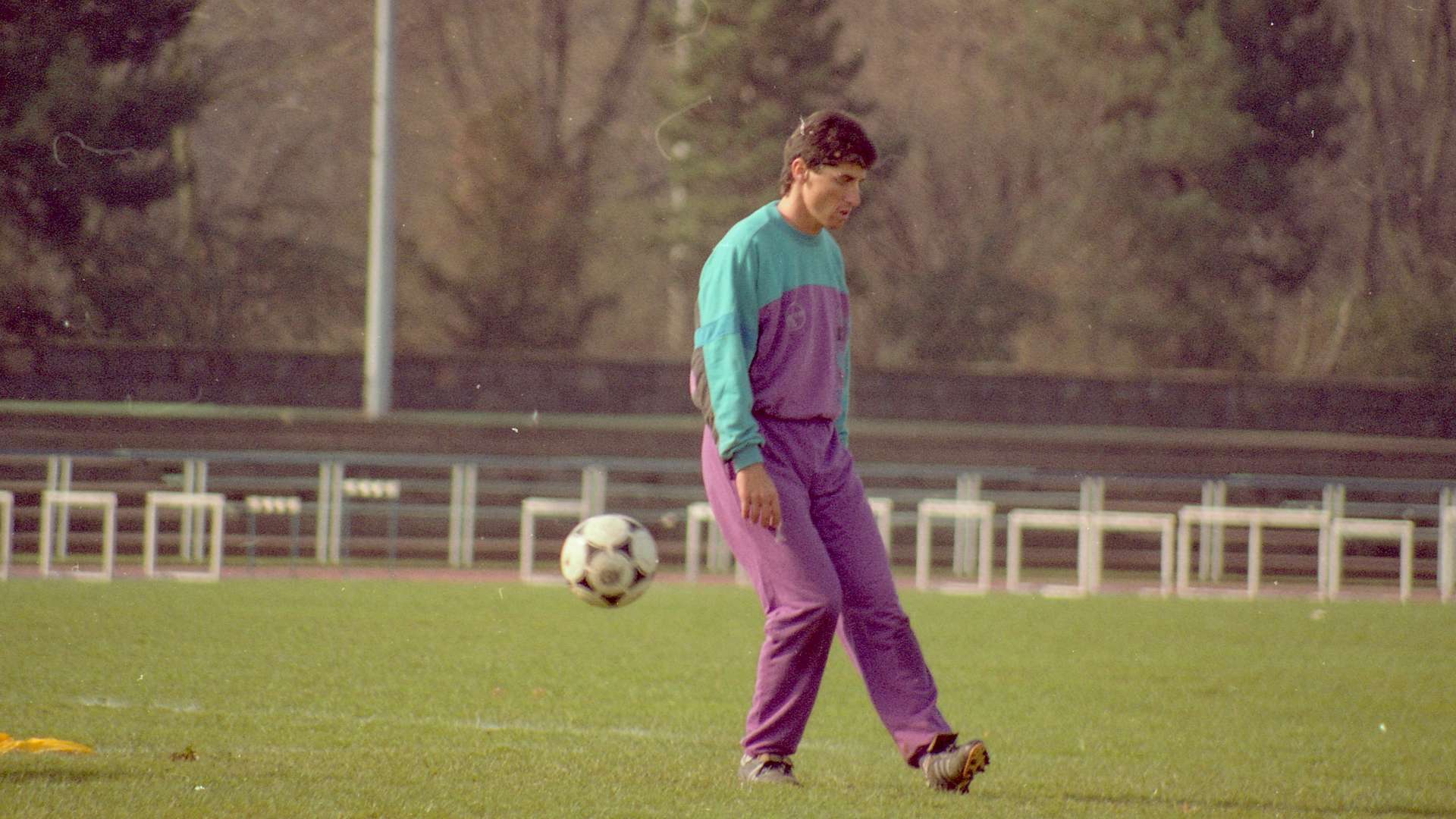
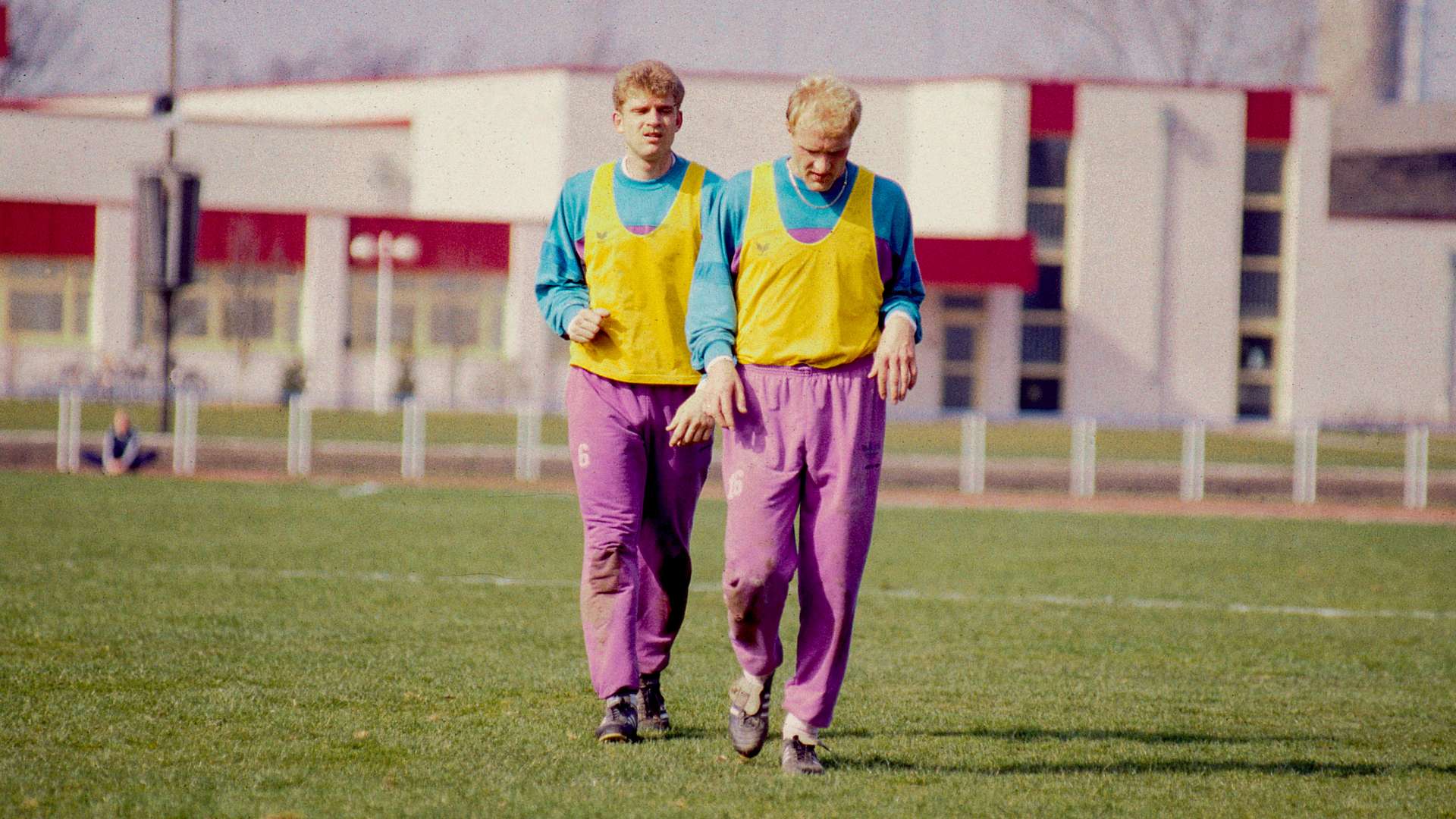
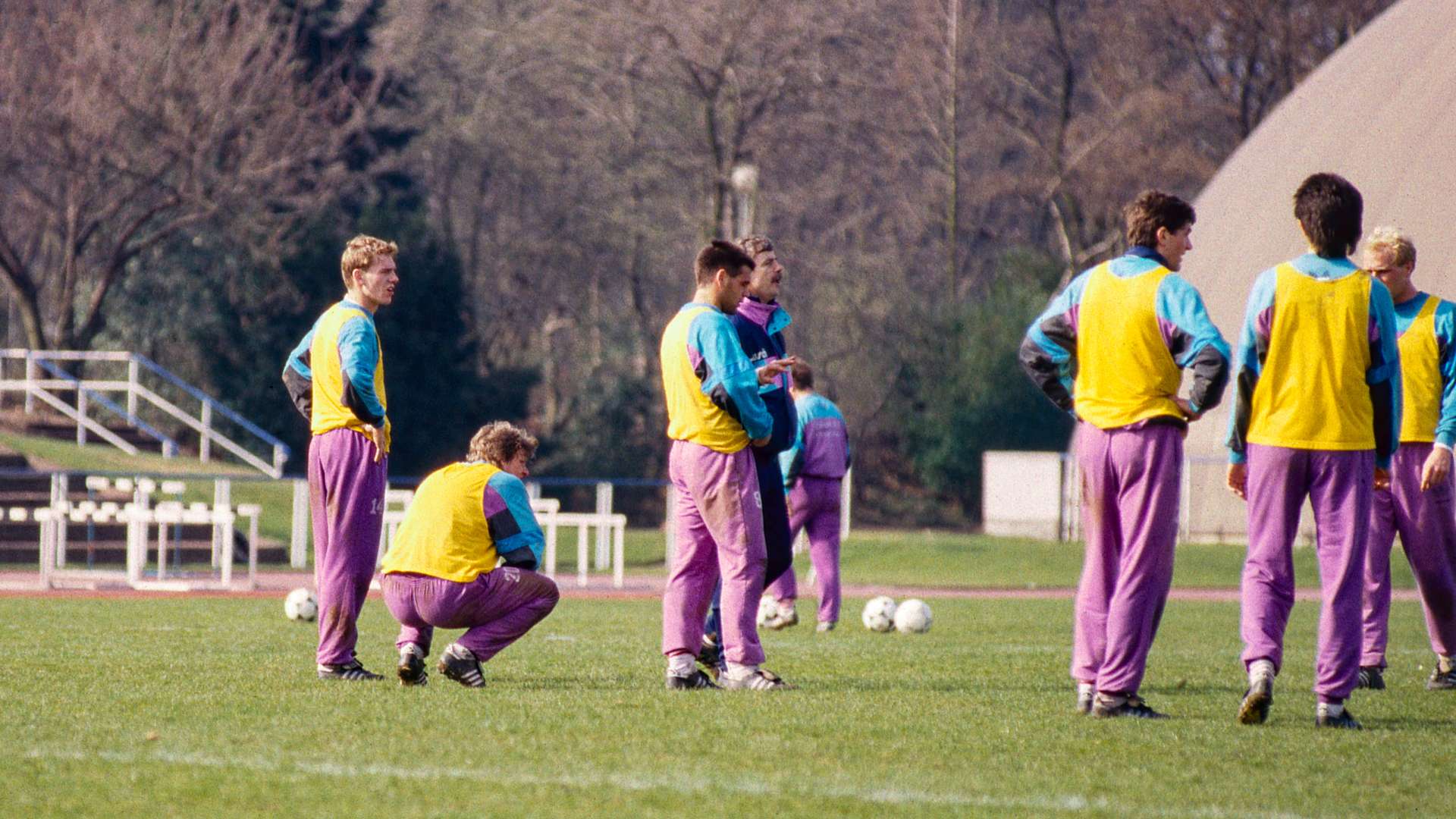
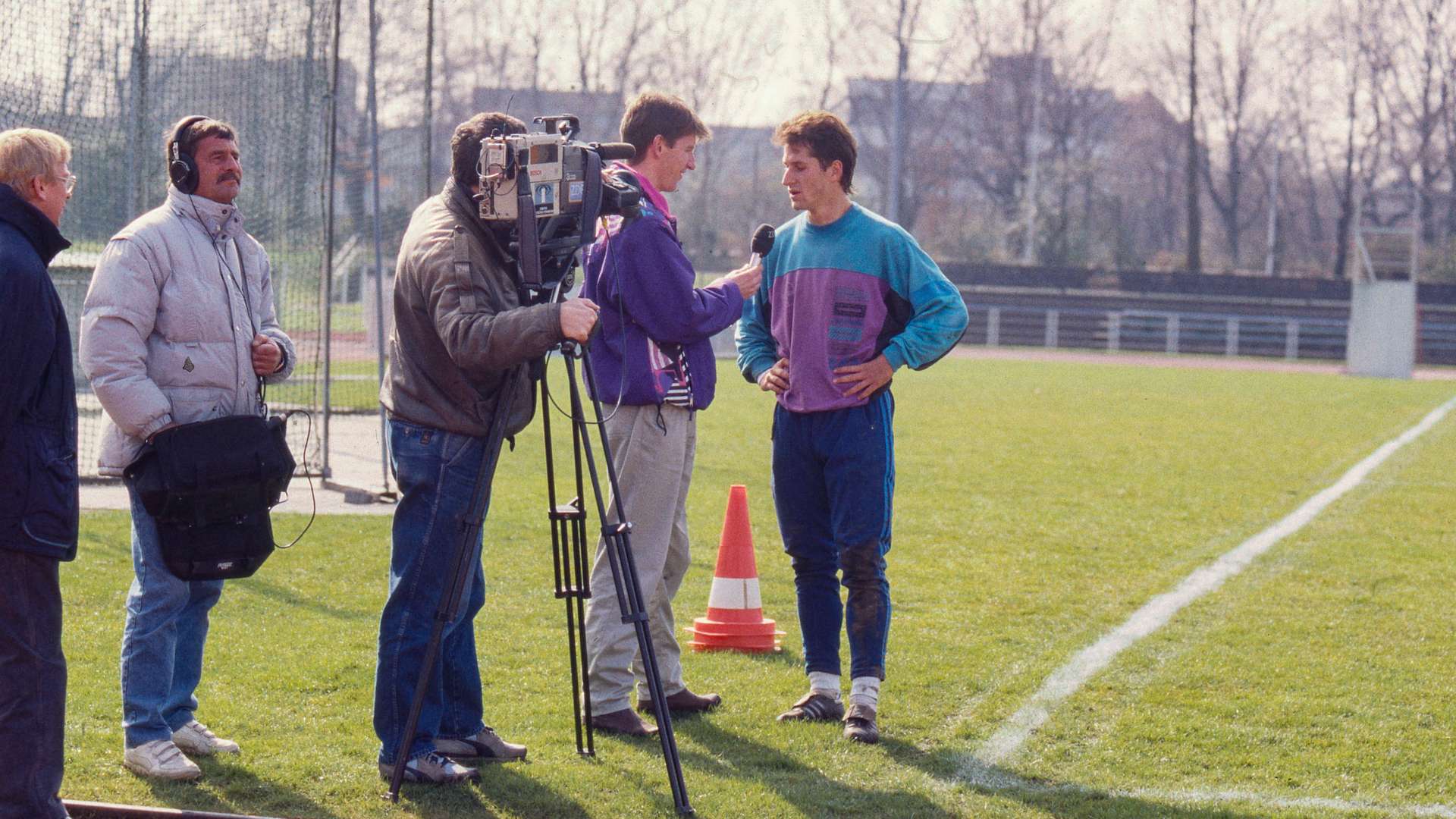
Saftig stormed down the corridor, entered Tscholli's room – and there were the three "injured players" sitting on the bench, grinning at him and shouting: "April fool!" The coach was hugely relieved as the selection problems had suddenly evaporated. The weekend brought a 1-1 draw in Cologne a couple of days later defeat on penalties in the DFB Cup semi-final in Mönchengladbach. We had to wait another year before making it to the cup final.
Related News
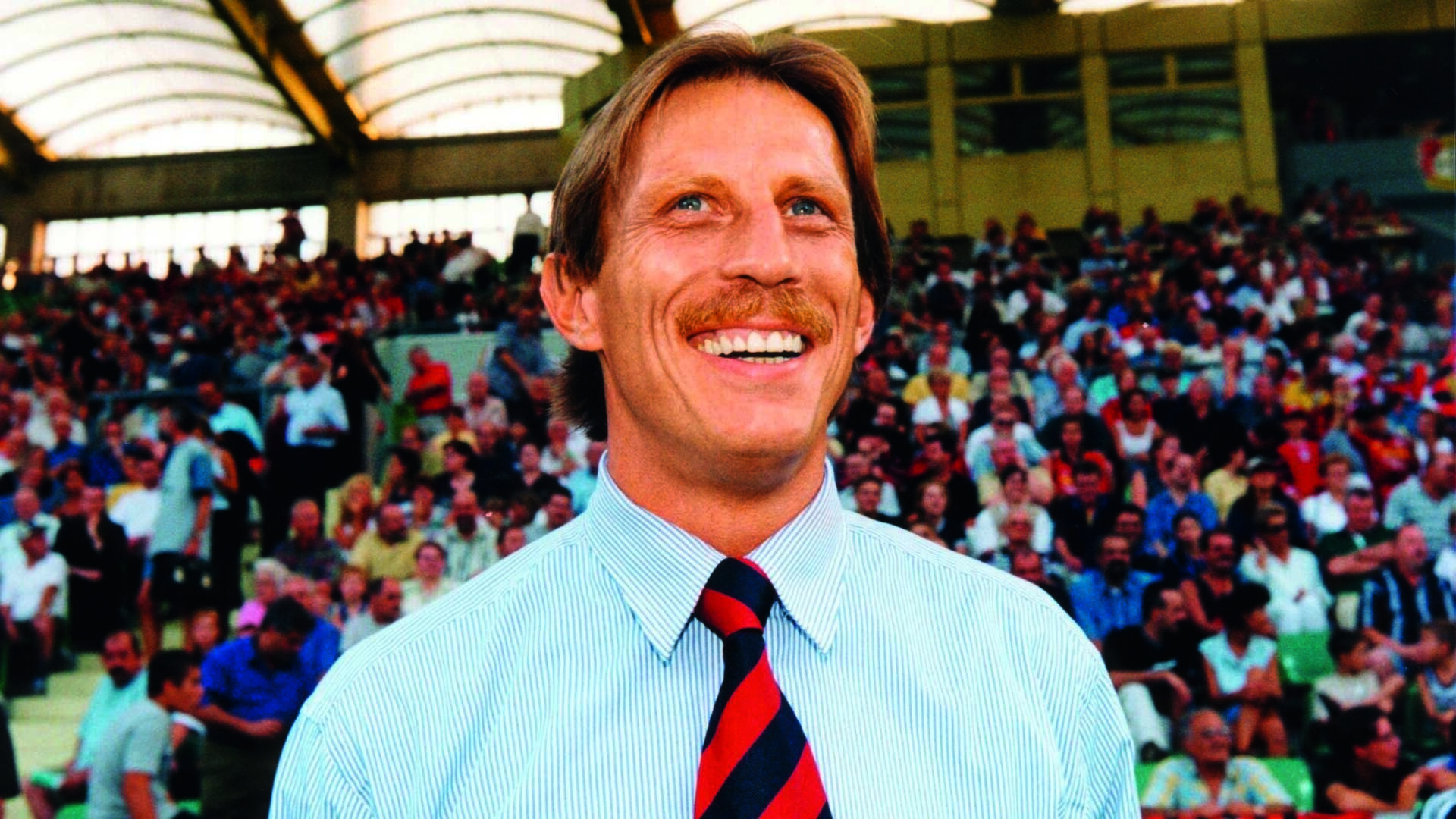
Legend: Christoph Daum - The man who taught us to want
Christoph Daum was born on 24 October 1953 in Zwickau. As a child, he moved to West Germany with his mother and grew up in Duisburg. He developed a great enthusiasm for football at an early age, even though it soon became clear that his future lay less on the pitch than on the sidelines. Even at a young age, his passion for analysing, explaining and improving things became apparent.
Show more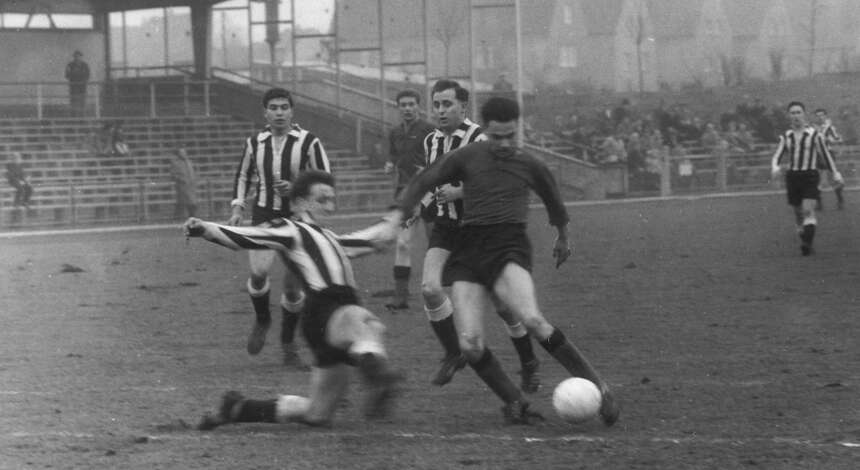
From the archives: 65 years ago - Another victory at last
When the Bayer 04 players celebrated Christmas in 1960, they spent the winter in second place in the Oberliga West 2 on 20 points - but already five points behind leaders Schwarz-Weiß Essen. However, coach Erich Garske's team are struggling to get back on track in the new year. A goalless draw against Bonner FV at home at the Ulrich Haberland Stadium was followed by a 2-1 away defeat in Erkenschwick. The following home game also yielded just one point. As a result, the team's promotion ambitions dwindled to a minimum, as the gap to the coveted spot has now grown to a challenging ten points.
Show more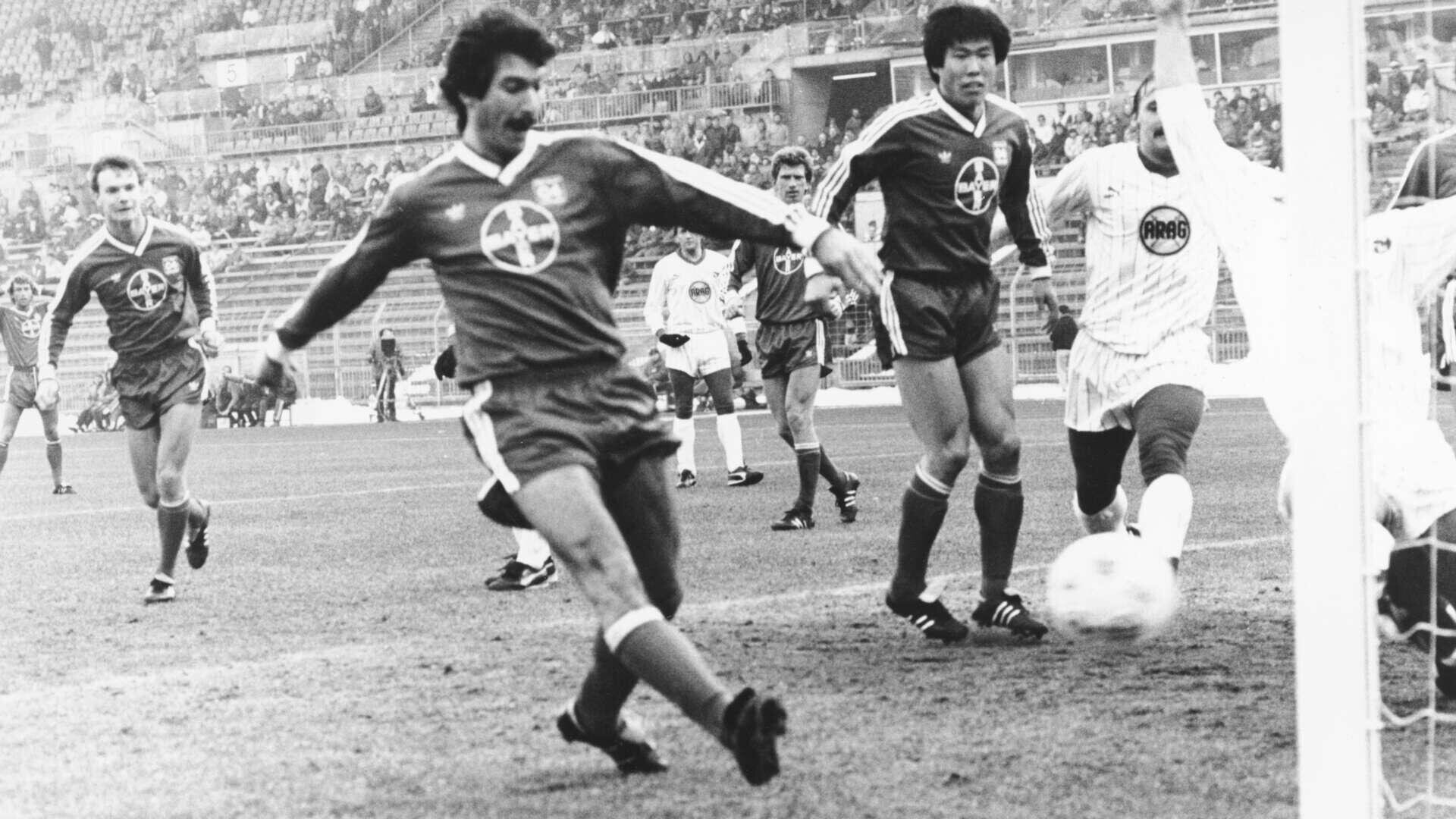
Goals of the month: From Waas to Tapsoba
In this video you can see impressive and important goals in Bayer 04 history from the month of February. It's not always about the beauty of the goals, but also a reminder of special games and players.
Show more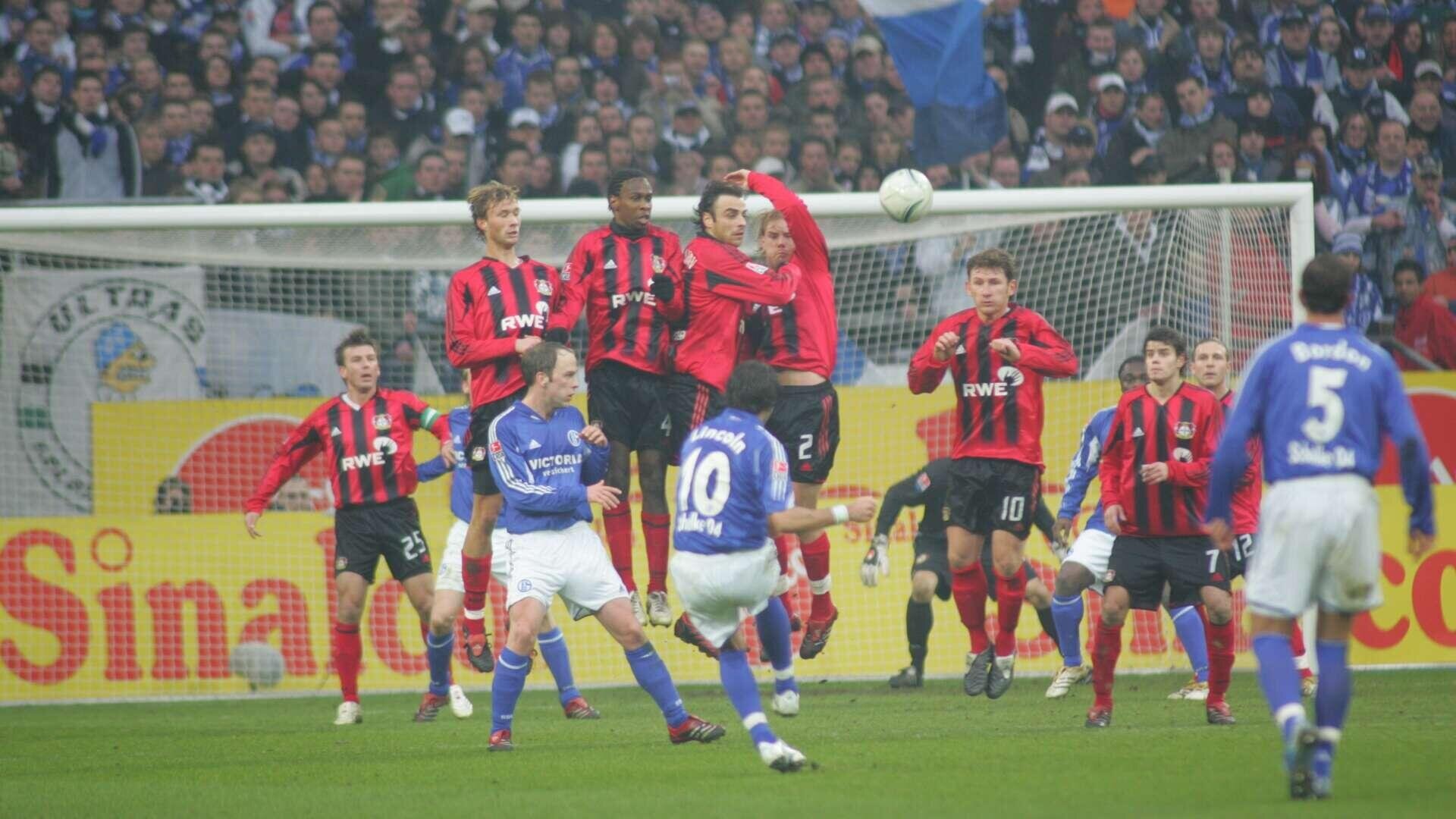
Match of the month: 20 years ago - A game of goals galore
It is 11 February 2006 and Schalke 04 and the Werkself kick off at 3.30 p.m. in a match that ends up being historic - at least from a Bayer 04 perspective.
Show more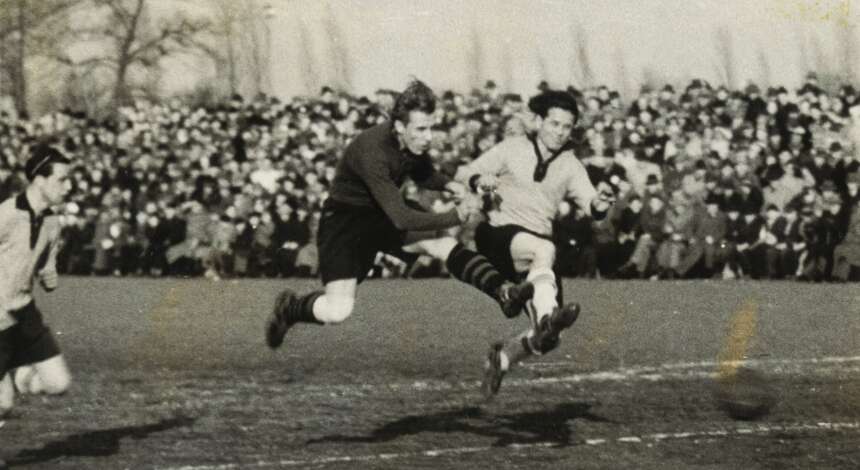
History: 75 years ago - The 1950/51 season (February)
As league leaders, the Werkself welcomed the relegation-threatened team from Rhenania Würselen. On 4 February 1951, 5,000 spectators line the touchlines despite the Sunday carnival parades. And they see a home team that is superior on the pitch. Without Theo Kirchberg, who was ill, and Emil Becks, who was suspended, the hosts attacked the opposing goal from the start. Battling against a strong wind in the first half, Bayer 04 created chance after chance, but were repeatedly thwarted by the Würselen goalkeeper. With the score at 0-0 at half-time, Karl Heinz Spikofski tried his luck on 55 minutes and hammered the ball into the opposition net from 20 metres out. Rhenania can no longer counterattack. The siege of the Würselen penalty area continued right to the end, but the game ended in a narrow 1-0 win.
Show more